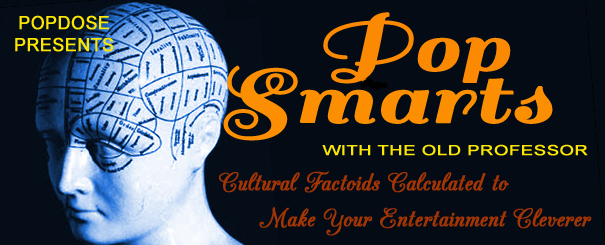
Like a lot of people, I have trouble taking Sting seriously — as seriously as he takes himself, anyway. But I must admit that I greeted the news of his upcoming album and theater piece The Last Ship — his first original pop material in ten years — with unalloyed glee. Regardless of whether the music is any good — and after detours into Renaissance lute music and a Police reunion tour, that’s very much an open question — every Sting record promises an impressive reading list.
Songwriters draw inspiration from all kinds of places, of course, from films and plays and paintings, from poems and novels and the daily news. But few songwriters have been so ostentatiously literary as Der Stinglehoffer. And it’s hard to overstate how revolutionary that was. These days, Lana Del Rey can straight-up drop lines from Lolita into her manicured dance-pop, and nobody raises an eyebrow. But in 1980, when the Stingmeister namechecked ”that book by Nabokov” on ”Don’t Stand So Close To Me,” you’d have thought the sky was falling.
[youtube id=”KNIZofPB8ZM” width=”600″ height=”350″]The smart critical establishment of the day had (and, to an extent, still has) a complicated relationship with the idea of book smarts. Rock critics — many of whom were themselves bookish youths — had an investment in the image of rock n’ roll as a blue-collar vocation. For them, ”authenticity” was the coin of the realm, and their notions of rock authenticity were constructed from the template of the hard-knock, half-educated bluesmen and hillbillies who had so electrified them when the music was born. Rockers were supposed to be truth-tellers; but their truths came from personal experience, tough living, and the streets, not secondhand from the pages of books. Eggheads were not to be trusted.
Oh, maybe Dylan got a pass, and yeah, okay, Pete Townshend and Mick Jagger went to art school and yeah, ”Sympathy for the Devil” was probably copped from a highfalutin Russian novel. But those rock icons weren’t shoving their education in your face, making themselves out to be experts. Not like those fancy-boy prog-rock fuckers, with their classical training and their million-dollar keyboard rigs, or the pale, skinny singer-songwriter uggos, clutching their volumes of Robert Frost as a shield against getting beat up for their lunch money. No, rock n’ roll was to be an artform of The People, of leather-jacketed rough trade, of the unwashed masses whom the critical classes feared and secretly envied. Elvis Presley — he was a real rock star, a backwoods Dionysus who had driven a truck before getting discovered. But MacStingus? He was a wannabe jazz cat. He’d been a teacher, fa chrissakes.
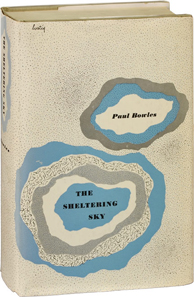 But what sort of brainiac is he, this Sting-a-Ding-Ding? Looking at the songs he’s written, what can we infer about his reading habits? The evidence suggests that he’s pretty middlebrow in his tastes. Aside from Lolita, we find on Das Schtingler’s nightstand the 1949 novel The Sheltering Sky, which inspired the Police deep cut ”Tea in the Sahara” (from Synchronicity). The novel by proto-Beat writer Paul Bowles, was a best-seller in its day, and a minor classic of postcolonial literature. The solo track ”Moon Over Bourbon Street,” from the Stingmonster’s post-Police dÁ©but The Dream of the Blue Turtles, nodded to Anne Rice’s Interview With the Vampire, which is kind of embarrassing. It should be remembered, though, that this was 1985; at the time, Interview was still a cult novel, a weird little one-off. (It would not be until later in the decade that Rice would become a literary supernova, descend into self-parody, feud with Tom Cruise, find Jesus, and go crazy, not necessarily in that order.)
But what sort of brainiac is he, this Sting-a-Ding-Ding? Looking at the songs he’s written, what can we infer about his reading habits? The evidence suggests that he’s pretty middlebrow in his tastes. Aside from Lolita, we find on Das Schtingler’s nightstand the 1949 novel The Sheltering Sky, which inspired the Police deep cut ”Tea in the Sahara” (from Synchronicity). The novel by proto-Beat writer Paul Bowles, was a best-seller in its day, and a minor classic of postcolonial literature. The solo track ”Moon Over Bourbon Street,” from the Stingmonster’s post-Police dÁ©but The Dream of the Blue Turtles, nodded to Anne Rice’s Interview With the Vampire, which is kind of embarrassing. It should be remembered, though, that this was 1985; at the time, Interview was still a cult novel, a weird little one-off. (It would not be until later in the decade that Rice would become a literary supernova, descend into self-parody, feud with Tom Cruise, find Jesus, and go crazy, not necessarily in that order.)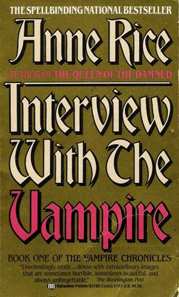
And that’s about it for novels. The Stingenator, like a lot of middle-class intellectuals, seems to favor nonfiction; The Executioner’s Song, Norman Mailer’s account of the life and death of spree killer Gary Gilmore, was the acknowledged inspiration for ”Bring on the Night” (Regatta de Blanc), while ”An Englishman In New York” (from 1987’s Nothing Like the Sun) referenced the life and works of gay icon and memoirist Quentin Crisp, particularly Manners From Heaven; at around the same time he was also reading about German composer Hanns Eisler, and used one of Eisler’s tunes as the basis for ”The Secret Marriage.”
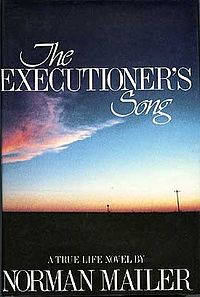 But biography, in the main, seems to be of secondary interest to His Royal Stingness. He’s more at home in the world of ideas, particularly pop philosophy and the psychology of consciousness. Arthur Koestler’s 1967 study The Ghost in the Machine lent its title to a Police record, although Den Stingenmeier ultimately disagreed with Koestler’s hardline materialist thesis, refuting the electro-chemical model of consciousness with ”Spirits In the Material World.”
But biography, in the main, seems to be of secondary interest to His Royal Stingness. He’s more at home in the world of ideas, particularly pop philosophy and the psychology of consciousness. Arthur Koestler’s 1967 study The Ghost in the Machine lent its title to a Police record, although Den Stingenmeier ultimately disagreed with Koestler’s hardline materialist thesis, refuting the electro-chemical model of consciousness with ”Spirits In the Material World.”
Koestler’s 1972 The Roots of Coincidence addressed psychic phenomena — precognition and the like — in terms of quantum mechanics, with Koestler postulating that subatomic events could send ripples back in time. Das Schtingler’s reading of Koestler sent him to the works of Carl Jung, especially Synchronicity (1952). Jung’s ideas hang heavily over the Police album of the same name; ”Synchronicity I” outlines the concept of acausal connection in general terms, while ”Synchronicity II” shows it in action, as the repressed anger of a frustrated suburbanite is played out in a seemingly unconnected horror-movie scenario ”many miles away.”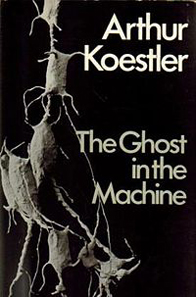
This stuff is obvious. But Jung’s notion of the collective unconscious is roiling around the lyrics of Synchronicity, also. William Butler Yeats, the Irish poet, had a similar concept that he called spiritus mundi, the world-soul, and that phrase gets an explicit shout-out in ”Synchronicity I.” Both the mythological tropes in ”Wrapped Around Your Finger” and the nonreferential symbolism of ”King Of Pain” play with the concept in different ways. The former song, about the shifting power dynamics of a romantic relationship, gains a greater resonance by its references to the Odyssey and the Faust legend — myths found, in various forms, in cultures around the world and deriving, Jung theorizes, from universal, primordial patterns hardwired into the human psyche. In a similar fashion, ”King of Pain” paints a string of images that, despite having no obvious literal meaning, evoke a cumulative emotional affect.
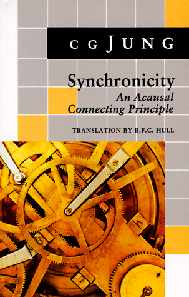 What else? We know that S-to-the-Ting sprinkles his songs with lines from Shakespeare, but that’s pretty much a given; Shakespeare basically invented the English vernacular, and you yourself probably quote him a dozen times a day without realizing it. In the run-up to Nothing Like the Sun, he mentions reading a good deal of history, including a book by Buckminster Fuller that I assume to be Critical Path — again, not so much a history book as a theory of history.
What else? We know that S-to-the-Ting sprinkles his songs with lines from Shakespeare, but that’s pretty much a given; Shakespeare basically invented the English vernacular, and you yourself probably quote him a dozen times a day without realizing it. In the run-up to Nothing Like the Sun, he mentions reading a good deal of history, including a book by Buckminster Fuller that I assume to be Critical Path — again, not so much a history book as a theory of history.
We could keep going, song by song, album by album, but I think we get the idea. Not a lot of hard science on this reading list; no biology, no mathematics, no physics. Which is not to say that the Stingster hasn’t read the works of, say Carl Sagan or Stephen Hawking — simply that he hasn’t written songs about them. It’s not a bad list. It favors the sort of pop philosophy that still makes the bestseller charts; Koestler, Jung, Mailer, Fuller — they’re big names, but they also sold a shedload of books, and you don’t do that if you’re writing stuff inaccessible to the well-read layman. You know. Like you and me.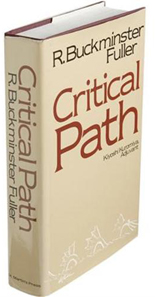
Look around you. Malcolm Gladwell is a bona fide celebrity, and his works on social psychology are tearing up the bestseller lists. Astrophysicist Neil deGrasse Tyson has an open invitation to The Daily Show. Jared Diamond talks about anthropology on to The Colbert Report. Jesse Bering has a regular gig at Slate writing about evolutionary psychology. You can watch TED Talks all day and night from your home computer. Being a well-read layman, in other words, is easier than ever — whether you write songs about it or not.
Our cultural fetish for ”authenticity” is starting to fade now, thank God, and the stigma of being ”clever” is going with it. Poverty and ignorance are only romanticized by people who have experienced neither; those who have grown up surrounded by them know better. And while he may be the Duke of Stingcaster now, young Matt Sumner, the milkman’s son — nobody ever called him Gordon — he knew better. Being clever was his ticket out of Wallsend, and good for him.
And if he can’t stop showing off, if he always seems to be trying a little too hard, well, that’s something you often see when a dude is from circumstances. A certain overcompensation. When you’ve clawed your way out through hard work and study and good fortune, you’re never going to look at the money and the learning that have gained you this life and say, Yeah, this is enough. Because once you get out, you don’t ever want to go back. And you can never be too sure.





Comments